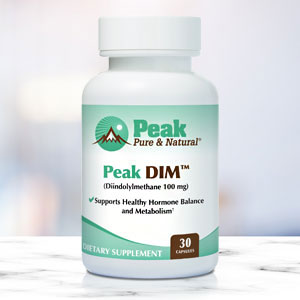Get Easy Health Digest™ in your inbox and don’t miss a thing when you subscribe today. Plus, get the free bonus report, Mother Nature’s Tips, Tricks and Remedies for Cholesterol, Blood Pressure & Blood Sugar as my way of saying welcome to the community!
Demystifying diagnostics: Blood tests and what they mean

Some doctors can go overboard with diagnostics. Others don’t seem to take every precaution you might expect when you’re concerned about your health.
Typically blood tests for a general health assessment are part of the annual health physical. Sometimes, though, tests may be needed beyond the basics, including more advanced and in-depth tests for disease risk profiling.
Unless something’s amiss, most of the time your doctor’s office will send your results in the mail with just numbers and abbreviations that may as well be Latin
Having a little information about the different types of tests available to you may ease your mind and help you be the best patient advocate for yourself or others.
Tier 1 tests
The first and most basic screening blood tests I usually order for my patients with no known disease are the following:
CBC: the complete blood cell (CBC) analysis measures your red and white blood cells. Your red blood cells carry oxygen throughout your body; the most common disorder here is anemia. Your white blood cells are a measure of your immune system status and are rarely abnormal when you are not fighting an infection. White blood cell cancer is known as leukemia.
CMP: The comprehensive metabolic panel (CMP) reveals the general function of your liver, gall bladder, and kidneys. It measures your blood sugar, mineral electrolytes (sodium, chloride, potassium, and calcium), acid-base balance, and blood protein (called albumin).
TSH: The thyroid stimulating hormone (TSH) is a measurement of the pituitary hormone (from your brain) that controls the secretion of your active thyroid hormones T3 and T4 (see thyroid details in the next section). When your TSH level is low, it is generally an indicator of hyperthyroidism and you are expected to have elevated thyroid hormones circulating in your blood. However, there is some recent science showing that genetic variances in nearly a third of our population cause thyroid hormone function not to be accurately reflected by measurable TSH and thyroid hormone levels.
Lipid Panel: This is your basic cholesterol panel, showing your total cholesterol, LDL (low-density lipoprotein) or “bad” cholesterol, and HDL (high-density lipoprotein) or “good” cholesterol, with ratios. You must fast 8-12 hours preceding this test for it to be accurate. The lipid panel has general implications for cardiovascular disease (CVD) risk. However, elevated “bad” cholesterol or low “good” cholesterol levels have a poor correlation based on more recent scientific studies. In fact, the link between cholesterol, heart disease and statins has been inconsistent.
Tier 2 tests
If you have an abnormal result from basic screening blood tests or if you want a more thorough assessment of your disease risk, I like to order these additional blood tests:
HbA1c: your blood glucose level can be in the normal range, especially if you were fasting 12 hours prior to the blood draw. You can have pre-diabetes or even long-standing diabetes and miss it on a fasting specimen. The HbA1c test reveals your average blood sugar level over the past 3-months. Results ranging from 5.7% to 6.4% demonstrate pre-diabetes (glucose intolerance), which means you are not metabolizing sugar normally and really should make some serious improvements in your diet and exercise (or begin the medication metformin). In the Diabetes Prevention Program, 58% of participants prevented progression to diabetes through diet and exercise interventions (compared to 31% who prevented progression to diabetes by taking metformin).
Vitamin D: At least 42 percent of American adults are deficient in Vitamin D, according to research. I find this estimate to be low from routinely testing my own patients. Therefore, I test the 25-Hydroxy Vitamin D level, and if low (below 30), supplementation will bring it into the optimal range (50-100). Click here for my article about Vitamin D deficiency.
Vitamin B12 & Folate: B12 deficiency can cause serious problems. If you are over 50, you are automatically more prone to being deficient in B12. Elevated vitamin B12 can be an indicator of the common MethylTetraHydroFolateReductase (MTHFR) gene polymorphism which causes a host of symptoms of illness and can be corrected by supplementing with methylated folate or methylcobalamin.
Free T3 and T4: Triiodothyronine (T3) and thyroxine (T4) measurements will tell you how much thyroid hormone is circulating in your blood. It may not necessarily tell you if it is effective in your thyroid-sensitive organ tissues. That’s why standard thyroid tests may miss the mark, and you should be persistent if you have symptoms, especially of low thyroid.
Cortisol: A serum cortisol level will give you an idea of adrenal stress/fatigue and the need for treatment. Click here for my article “Tired, depressed and hurting? Could be adrenal fatigue.”
Testosterone, estradiol, progesterone: Low testosterone in men or women is treatable. Low estrogen or progesterone, or estrogen dominance is also treatable safely from natural sources. Learn more here.
C-reactive Protein: This is produced by your liver and indicates inflammation in your body. Although non-specific, an elevated level is considered a “marker” for disease.
Editor’s note: Are you feeling unusually tired? You may think this is normal aging, but the problem could be your master hormone. When it’s not working, your risk of age-related diseases skyrockets. To reset what many call “the trigger for all disease” and live better, longer, click here to discover The Insulin Factor: How to Repair Your Body’s Master Controller and Conquer Chronic Disease!














